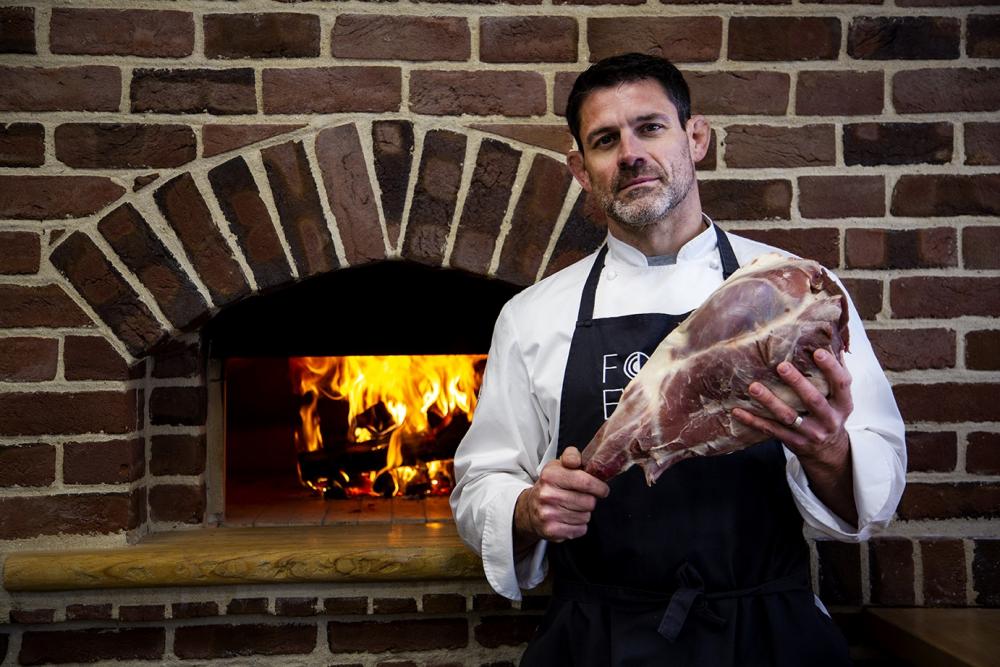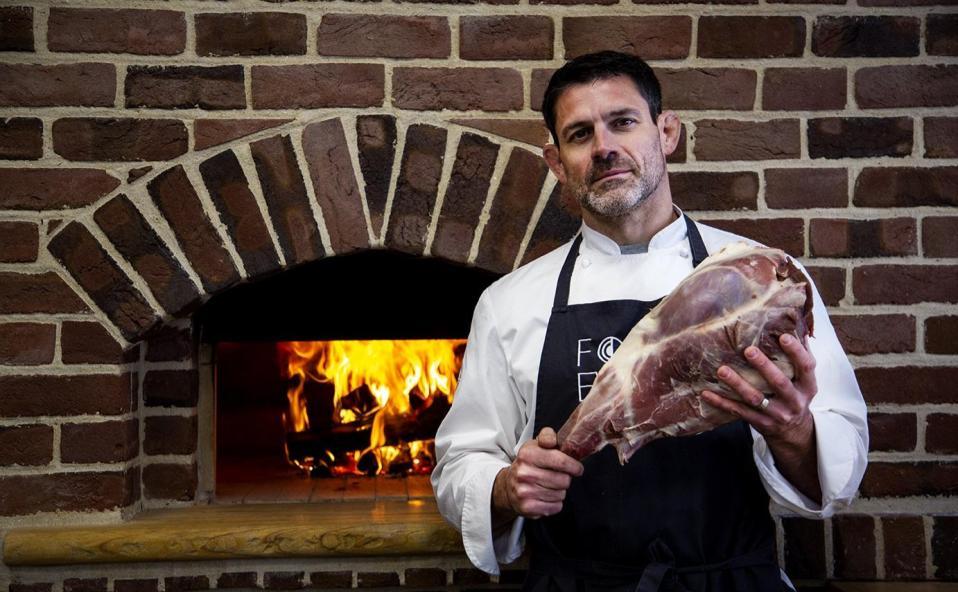Eastern Shore Food Lab Director Bill Schindler will present the second talk in Washington College’s 2019 lecture series in Talbot County on Oct. 3 with a discussion about the failures of the modern food industry and how we can more safely and thoughtfully feed ourselves.
The talk at Talbot Country Club, “Empty Plates: How the toxic modern food industry robs us of real nutrition,” begins at 6 p.m. Co-sponsored by Washington College and Talbot Country Club, it is open to the public for a fee of $15, which includes a reception that begins at 5:30 p.m.

Bill Schindler
Schindler, an anthropology professor at WC and an international expert on primitive technologies and experimental archaeology, is the founder and director of the Eastern Shore Food Lab at Washington College. His work focuses on gaining a comprehensive understanding of our ancient dietary past and our diverse dietary present to create meaningful change to our food system. As an archaeologist, food anthropologist, and chef, his approach spans work on two-million-year-old archaeological sites in Africa and prehistoric sites in Ireland, to ethnographic fieldwork with traditional communities from the jungles of Thailand to the Altiplano of Bolivia.
His unique perspective on food will prompt attendees to rethink everything they knew about healthy eating and see the modern food industry in a whole new light. This presentation will educate and empower listeners to take the first steps toward reconnecting with their diet and health.
Schindler’s talk will be followed on Nov. 7 with Benjamin Tilghman, assistant professor of art history. All events are at 6142 Country Club Drive, Easton, Maryland. The $15 fee pays for the reception and admittance, and is payable by credit card or check to Talbot Country Club at the event. Washington College is not accepting payments. Please RSVP by Sept. 26 to Victoria Corcoran at 410-778-7805 or [email protected].
About Washington College
Founded in 1782, Washington College is the 10th oldest college in the nation and the first chartered under the new Republic. It enrolls approximately 1,450 undergraduates from more than 39 states and territories and 25 nations. With an emphasis on hands-on, experiential learning in the arts and sciences, and more than 40 multidisciplinary areas of study, the College is home to nationally recognized academic centers in the environment, history, and writing. Learn more at washcoll.edu.



Write a Letter to the Editor on this Article
We encourage readers to offer their point of view on this article by submitting the following form. Editing is sometimes necessary and is done at the discretion of the editorial staff.